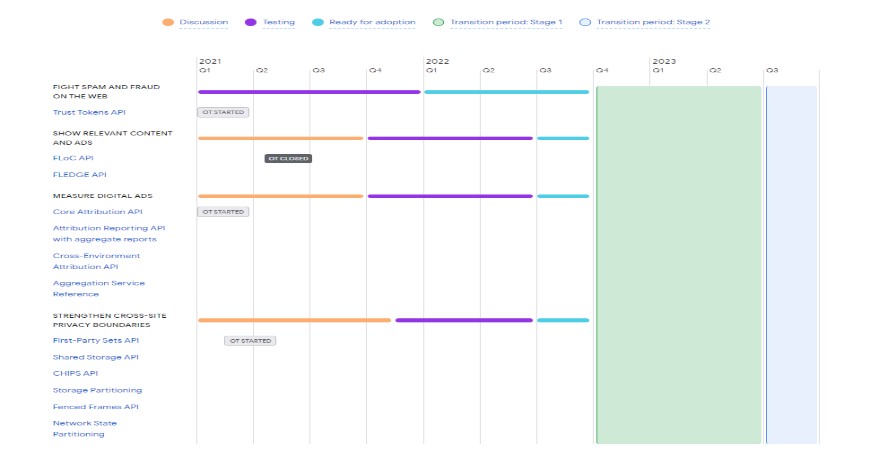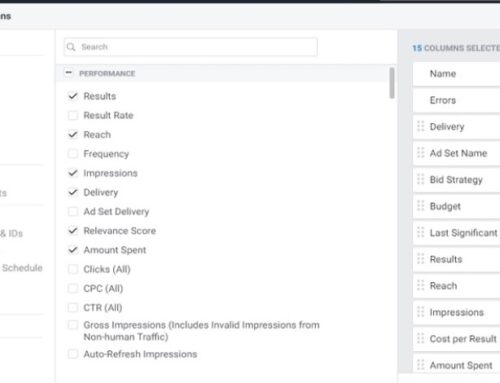Google has just announced the timelines for the various developments in their privacy sandbox initiative.
The timeline divides initiatives into four categories
- fight spam and fraud on the web
- show relevant content and ads
- measure digital ads
- strengthen cross-site privacy boundaries
All 4 are essential, perhaps the last 3 even more so, as it will affect how we collect our customers’ data online. Based on their predictions, FLOC and FLEDGE will be ready for adoption in Q4 2022, and the phasing out of 3rd party cookies is expected to happen 1 year later, in Q4 2023.
Advertisers will be given 1 full year to make the necessary adjustments and adapt to the new measurement system of the internet. The one that is centered around the user’s privacy.
The phases indicated on the timeline are as follows:

Discussion – The technologies and their prototypes are discussed in forums such as GitHub or W3C groups.
Testing – All technologies for the use case are available for developers to test and may be refined based on results.
Ready for adoption – Once the development process is complete, the successful technologies are ready to be used at scale. They will be launched in Chrome and ready for scaled use across the web.
Transition period: Stage 1 – APIs for each use case are available for adoption. Chrome will monitor adoption and feedback carefully before moving to next stage.
Transition period: Stage 2 – Chrome will phase out support for third-party cookies over a three-month period finishing in late 2023.
The timeline will be updated monthly, so it is expected to have changes. However, this should be the general target for now.
Why is this important?
Cookies has been a thing since the dawn of the internet, and many have said that it has outlasted its existence. For over 2 decades, cookies has helped us understand more about our customers – and make website experiences more relevant and easier to use. But this is all coming to an end soon.
The privacy sandbox initiative timeline helps advertisers prepare and expect for what’s ahead in the “cookie-less” world.





